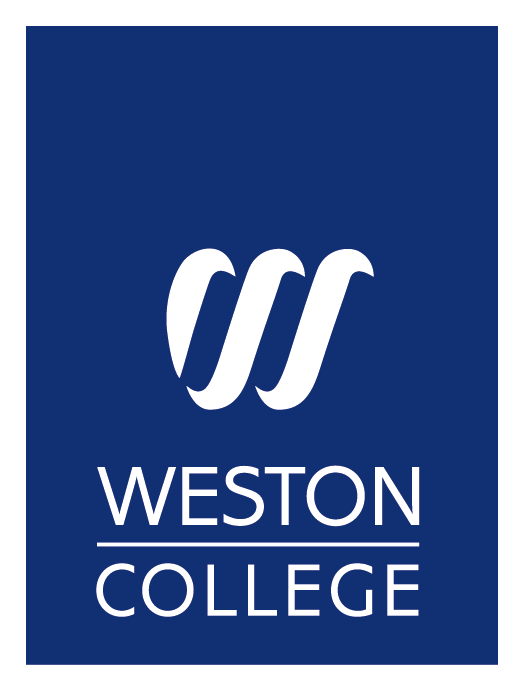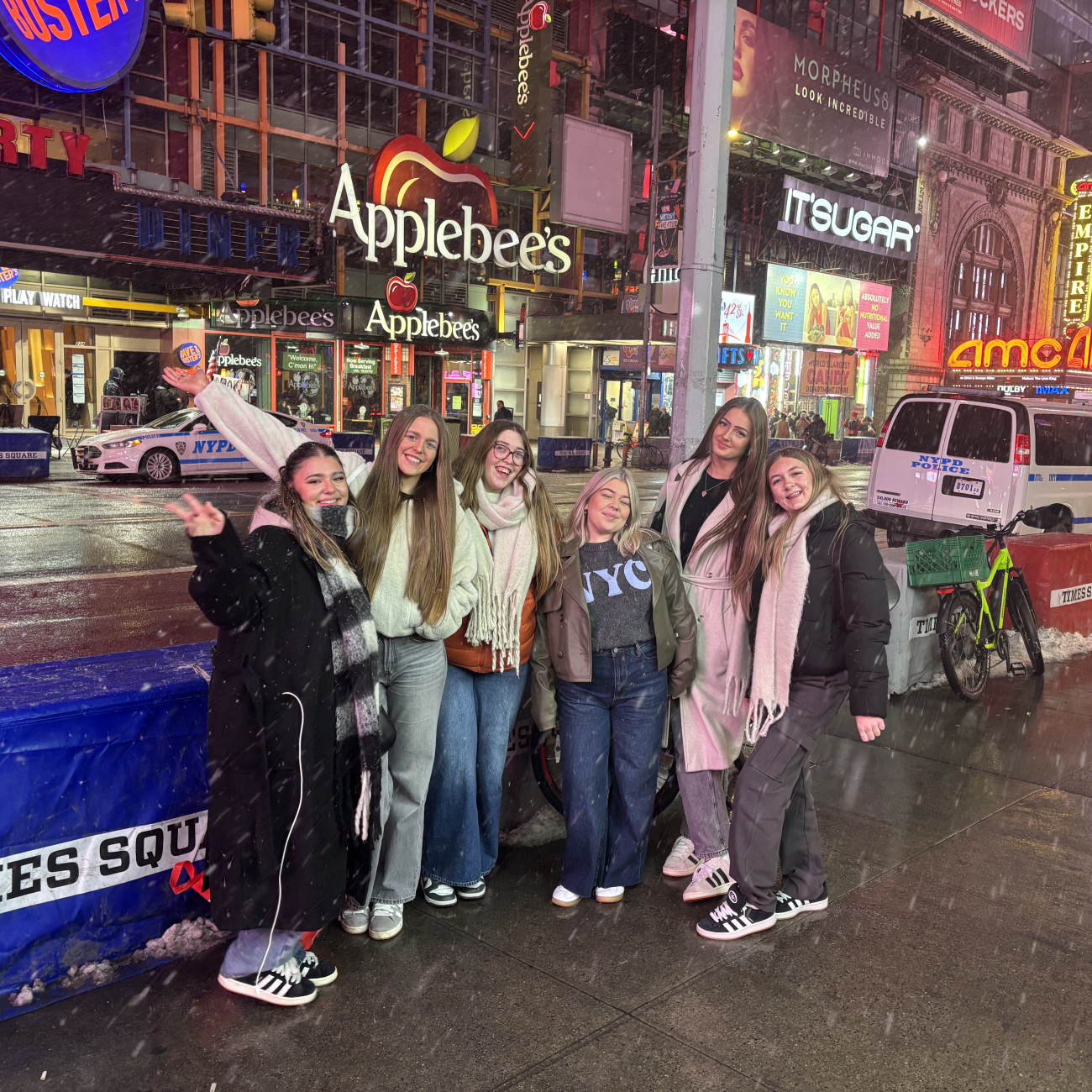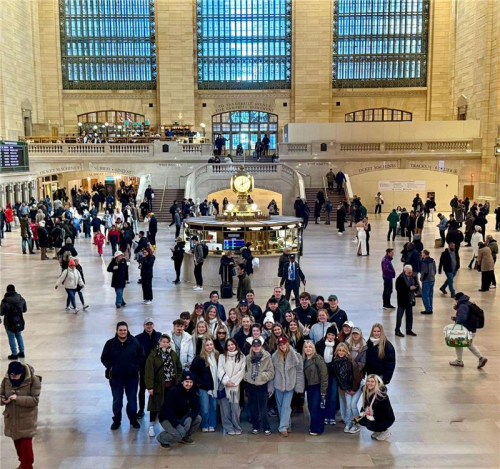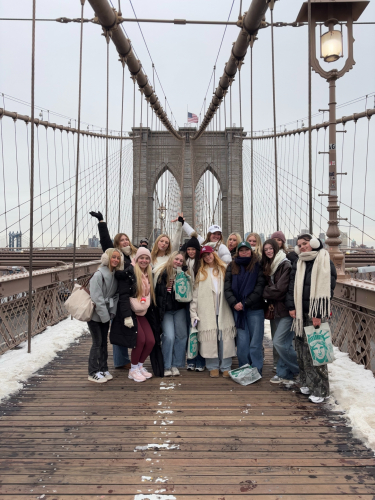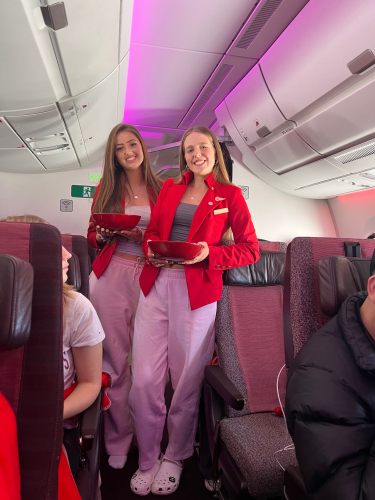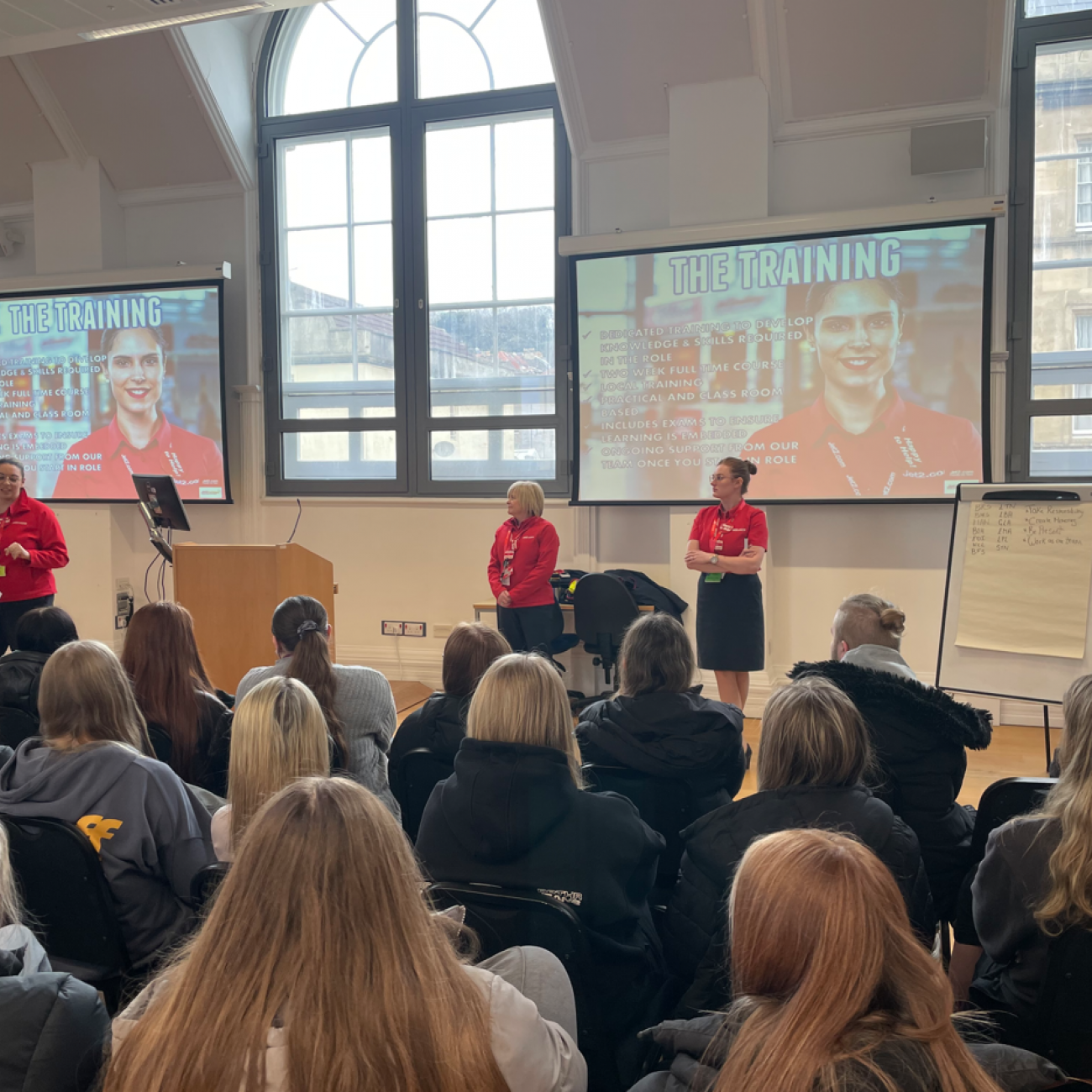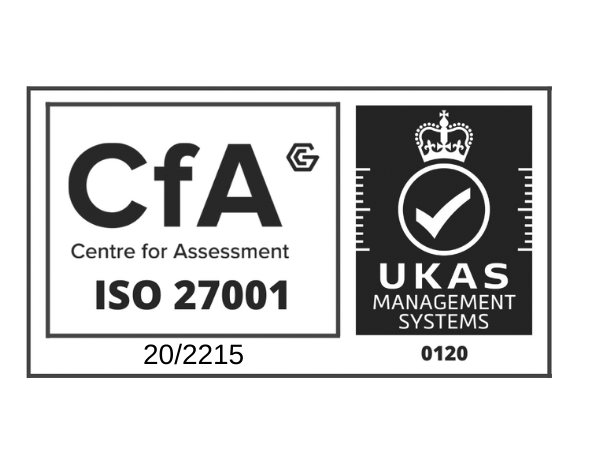Last month, a group of Business and Travel and Tourism students went on an exciting trip to New York City. They explored famous landmarks, experienced different cultures, and learned more about their studies in a real-world setting.
The trip gave students a chance to see how a big city operates and to visit well-known places like the Statue of Liberty, Brooklyn Bridge, Times Square, Rockefeller Centre, Wall Street, the Empire State Building, Grand Central Station, the 9/11 Memorial and Museum, the High Line, and Central Park. Each stop gave them a better understanding of history, business, and tourism and, because they visited over Valentine’s Day, they witnessed 4 proposals which was definitely a highlight!
Besides the main attractions, students also explored Ellis Island, Chinatown, Little Italy, and 5th Avenue. These areas gave them a glimpse into the different cultures that make up New York and allowed them to see parts of the city that are not always on the typical tourist route.
Many students found the 9/11 Memorial and Museum particularly impactful as it was such a powerful experience and a massive part of history, being portrayed through exhibitions, personal stories, and artefacts. For our Travel learners, it put something they have read and learnt about in the classrooms into a real-world context and gave them a deeper understanding of how it affected travel and tourism, not only in America, but internationally.
Lucille, a first-year Level 3 Travel and Tourism student, shared her experience: “The New York trip was so much fun, from seeing and exploring the landmarks of the city to meeting other learners in other classes who also went on the trip. I especially enjoyed seeing the Statue of Liberty and Brooklyn Bridge while getting to try some classic New York experiences like riding in a yellow taxi and tasting amazing food.”
Hannah Carstensen, one of our Travel and Tourism lecturers who organised the trip, added, “For both our Business and Travel and Tourism learners, this was an incredible opportunity to visit a premier destination for tourism which is home to countless corporations, financial institutions and business headquarters.”
Beyond learning, the trip helped the learners create unforgettable memories and build friendships with students on different courses that they don’t always get chance to interact with. It was an incredible trip that allowed them to experience a city completely different to Weston-super-Mare.
If you are interested in applying to one of our Business or Travel and Tourism courses, click here.
If you are passionate about education and are looking for an opportunity to join the staff team at a leading college, then look at the latest job vacancies available at Weston College here. You can find all the latest job opportunities that Weston College has to offer, with a commitment to providing quality education for learners and a focus on continuous professional development for staff, Weston College is an excellent place to work and grow in your career.





